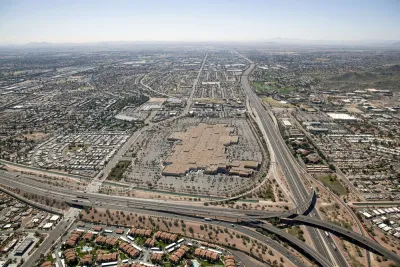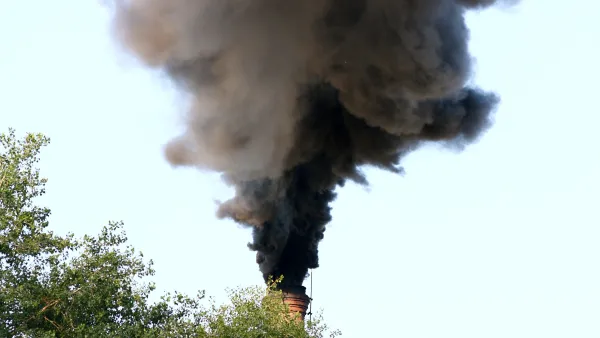The findings of a new study based in Boston offer evidence of negative health outcomes connected to the collision of residential land use and transportation infrastructure.

David Abel reports: "A new study of Boston residents who live or spend a significant amount of time near Interstate 93 and the Massachusetts Turnpike has found that their exposure to microscopic metals and chemicals spewed from vehicles increases their chances of suffering a heart attack or stroke."
According to Abel, the study is just the latest addition to a "growing body of evidence of the dangers of living near highways and other busy roads." Specifically, "those who live within 1,500 feet of a highway have a greater likelihood of developing cardiovascular disease than those living twice as far away."
The study was published last week in the Environment International journal, by researchers from the Tufts University School of Medicine and Boston University School of Public Health. The article also includes reactions to the study's findings from the city's Environment Department and local activists like the Chinese Progressive Association in Chinatown.
FULL STORY: New evidence of the dangers of living near highways

Analysis: Cybertruck Fatality Rate Far Exceeds That of Ford Pinto
The Tesla Cybertruck was recalled seven times last year.

National Parks Layoffs Will Cause Communities to Lose Billions
Thousands of essential park workers were laid off this week, just before the busy spring break season.

Retro-silient?: America’s First “Eco-burb,” The Woodlands Turns 50
A master-planned community north of Houston offers lessons on green infrastructure and resilient design, but falls short of its founder’s lofty affordability and walkability goals.

Test News Post 1
This is a summary

Analysis: Cybertruck Fatality Rate Far Exceeds That of Ford Pinto
The Tesla Cybertruck was recalled seven times last year.

Test News Headline 46
Test for the image on the front page.
Urban Design for Planners 1: Software Tools
This six-course series explores essential urban design concepts using open source software and equips planners with the tools they need to participate fully in the urban design process.
Planning for Universal Design
Learn the tools for implementing Universal Design in planning regulations.
EMC Planning Group, Inc.
Planetizen
Planetizen
Mpact (formerly Rail~Volution)
Great Falls Development Authority, Inc.
HUDs Office of Policy Development and Research
NYU Wagner Graduate School of Public Service




























